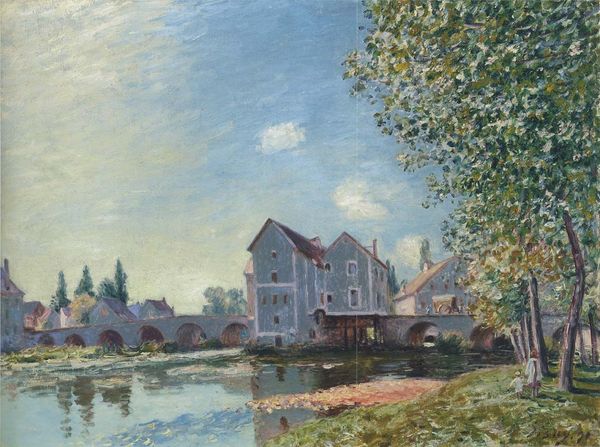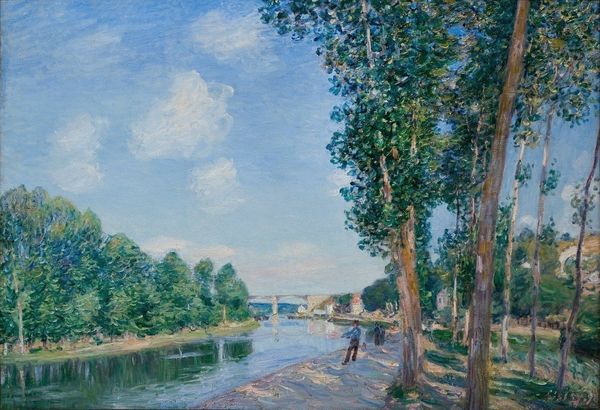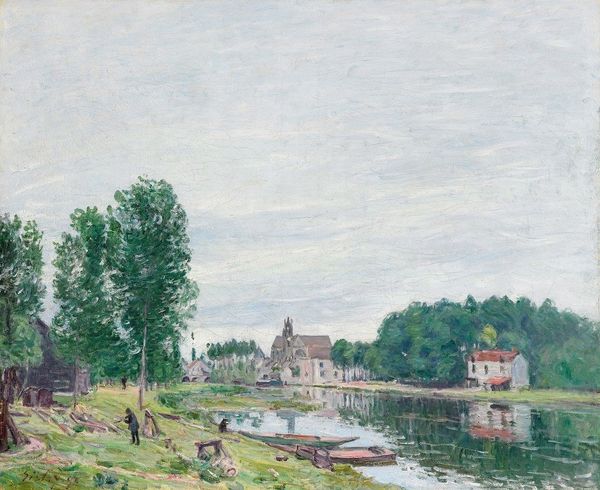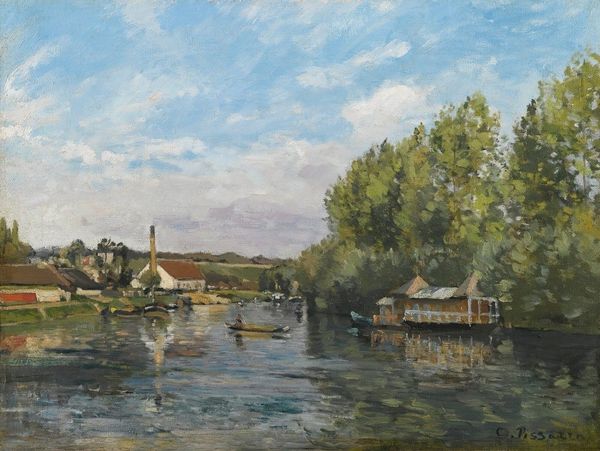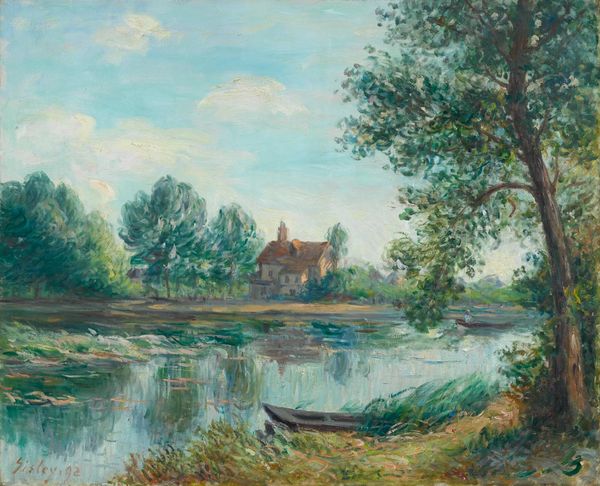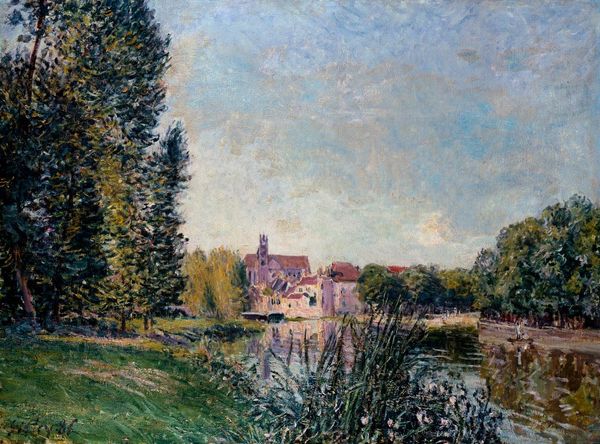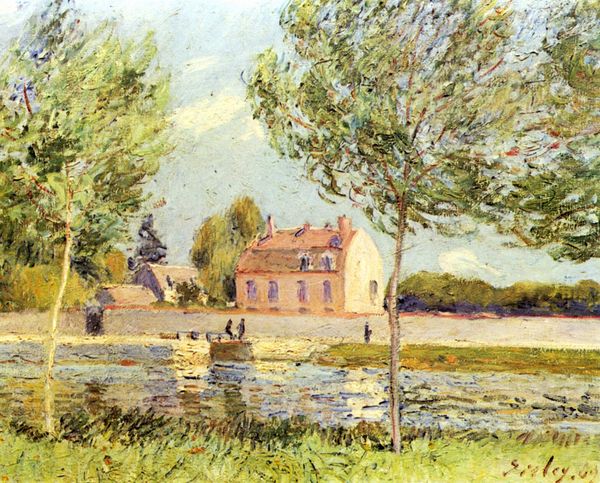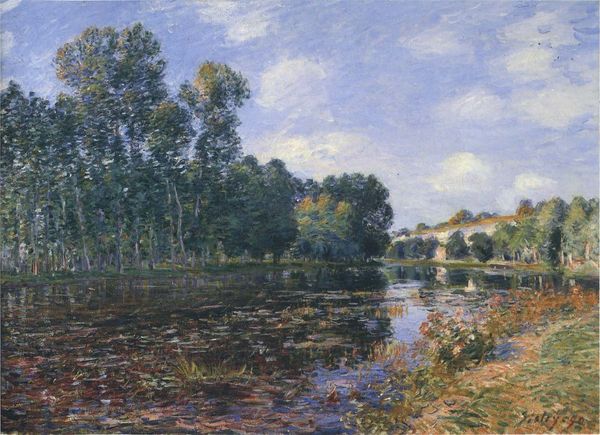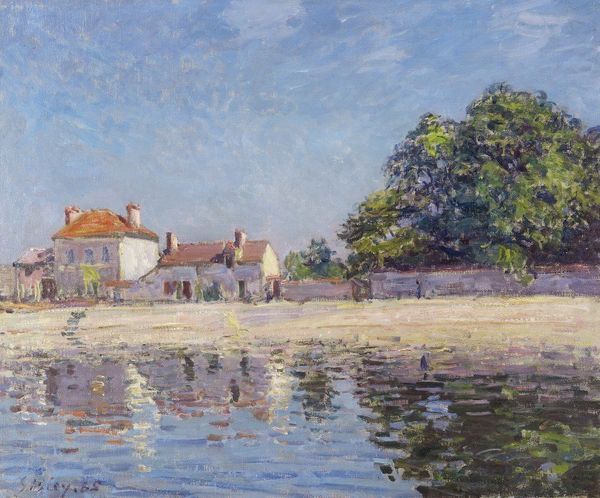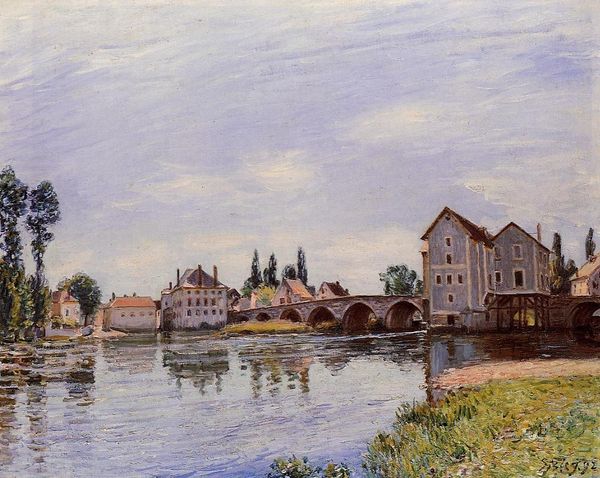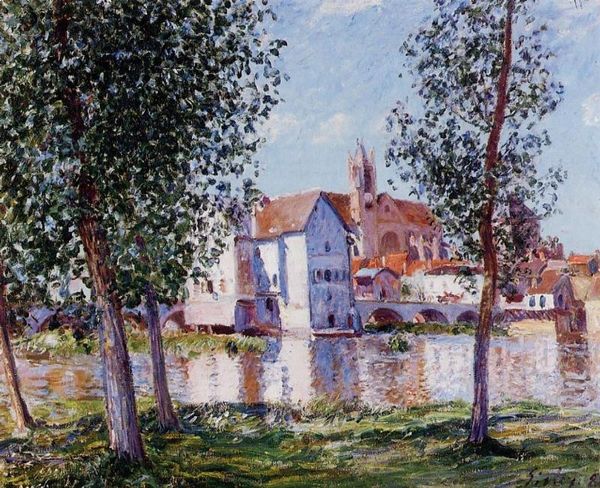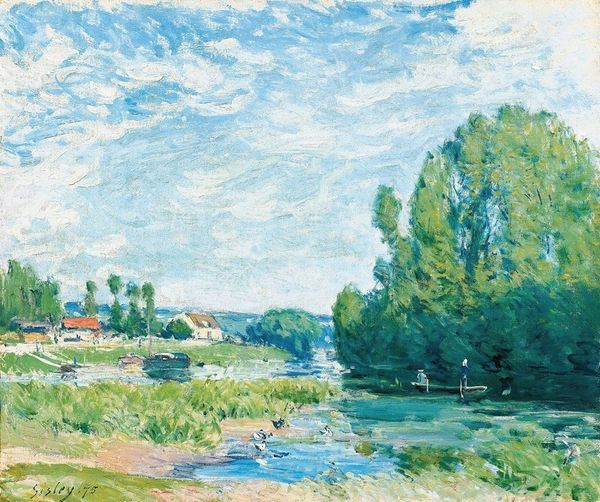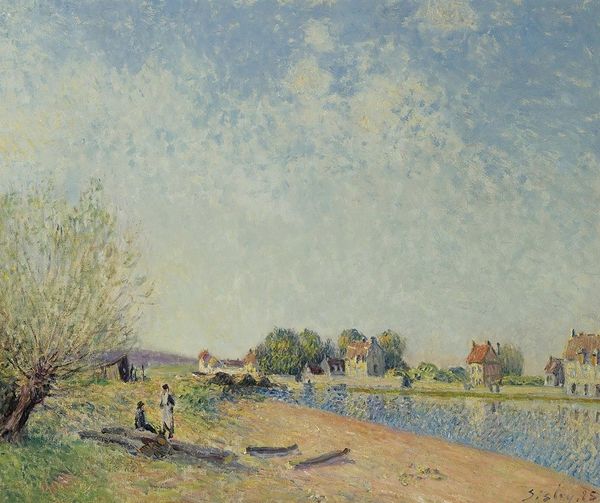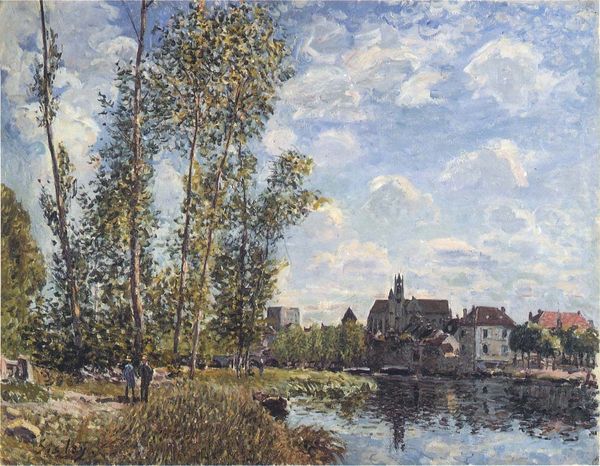
Copyright: Public Domain: Artvee
Editor: Alfred Sisley's "Le Loing à Moret, En Été," painted in 1891, is an idyllic oil painting depicting a French cityscape, almost dreamlike. I find the scene incredibly tranquil. How would you interpret Sisley's perspective in capturing this particular moment and place? Curator: Well, placing this painting within its historical context, we see Impressionism moving into a new phase. The explicit rejection of the academic salon is somewhat receding, while we still see a dedication to representing modern life and leisure. But the *place* matters too. Small towns like Moret offered a respite from industrializing urban centers, becoming almost staged ‘natural’ escapes for the bourgeoisie. The carefully composed "naturalness" is really selling something, wouldn't you say? Editor: I can see that. The very idea of "naturalness" becomes constructed, then. Does this feed into a larger art market trend? Curator: Absolutely. Landscapes like these catered to the demands of a growing art market that idealized the countryside, often omitting the harsh realities of rural life. Think about it: the factories of urban landscapes are swapped out for quaint riverside views, ready for consumption by the rising middle class. Even the size of the work -- it is domestically scaled, optimized to be enjoyed in private homes rather than overwhelming public galleries. It embodies a specific aspiration. Editor: So, beyond the aesthetic pleasure, this painting is engaging with contemporary socio-economic currents? Curator: Precisely. It prompts us to consider whose vision of “summer” and “tranquility” is being represented and circulated, and for what purpose. The location itself isn’t a neutral space but loaded with social meanings and escapist desires tied to leisure. Editor: I've definitely gained a deeper understanding of the work. I had only thought about it on its surface beauty, but now I understand that it also makes a broader statement about contemporary society. Thanks. Curator: My pleasure. Examining those unspoken narratives shapes a richer experience with the artwork, in my opinion.
Comments
No comments
Be the first to comment and join the conversation on the ultimate creative platform.
